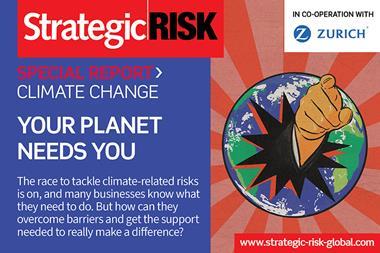Despite the growing fragility of a complex global supply chain, there is poor investment in risk management and ESG tools - IHS Markit
Events of the past year have upended the procurement industry, illustrating the fragility of a complex international supply chain and forcing a sea change in the industry.
However, according to a report by IHS Markit, supply chain professionals often lack the tools, data and platforms needed to diversify their supply chains and optimise their processes.
“Supply chains can no longer operate as siloed, disconnected functions; recent events such as the COVID-19 pandemic and the Suez Canal saga, have illustrated the need for supply chains to be resilient and agile,” said Wilhelm Greyling, executive director, supply chain solutions, IHS Markit.
“Supply chains can only truly be optimised via end-to-end collaboration and visibility. As the old saying goes, you can’t manage what you can’t see; an integrated approach is not only a nice to have, its essential.”
More complexity, more risk
Common causes of supply chain risk are disruptions and delays due to increased transportation cost, damage, unexpected returns or failure to sell, inventory issues, network disruptions, and supplier issues, including high cost or loss of supplier.
In addition, broader non-business-related disruptions can be caused by natural disasters or geopolitical issues.
Surprisingly, supplier risk management and ESG were prioritised as among the least important considerations, at nine and seven, respectively. Only 51 percent of supply chain leaders surveyed reporting having a strategy in place to combat ESG issues.
“Increasing legislation and regulation will continue to drive the importance of third-party risk management and ESG considerations, as companies increasingly become accountable not only for their own actions, but also for that of their suppliers,” said Greyling.
“The reluctance in investment into the areas of third-party risk and ESG could easily wipe out a firm’s cost-optimisation gains, as the penalties for oversights or breaches can be severe.”
The survey results signaled that in today’s world of complex supply chains, one missing link can have drastic cost and reputational benefits.
While respondents noted prioritising spend analytics and reported having a strategy in place to optimise costs, 63 percent lacked the necessary data, platforms and technology needed to make critical cost-saving decisions.
The results represent a clear misalignment between strategic intent and capability and send a signal that significant investment is needed in technology, platforms and data to enable and deliver overall supply chain objectives.
Successful supply chains of the future will need to balance precise cost optimisation strategies with a proactive approach to risk management and ESG considerations, it concluded.




















2 Readers' comments